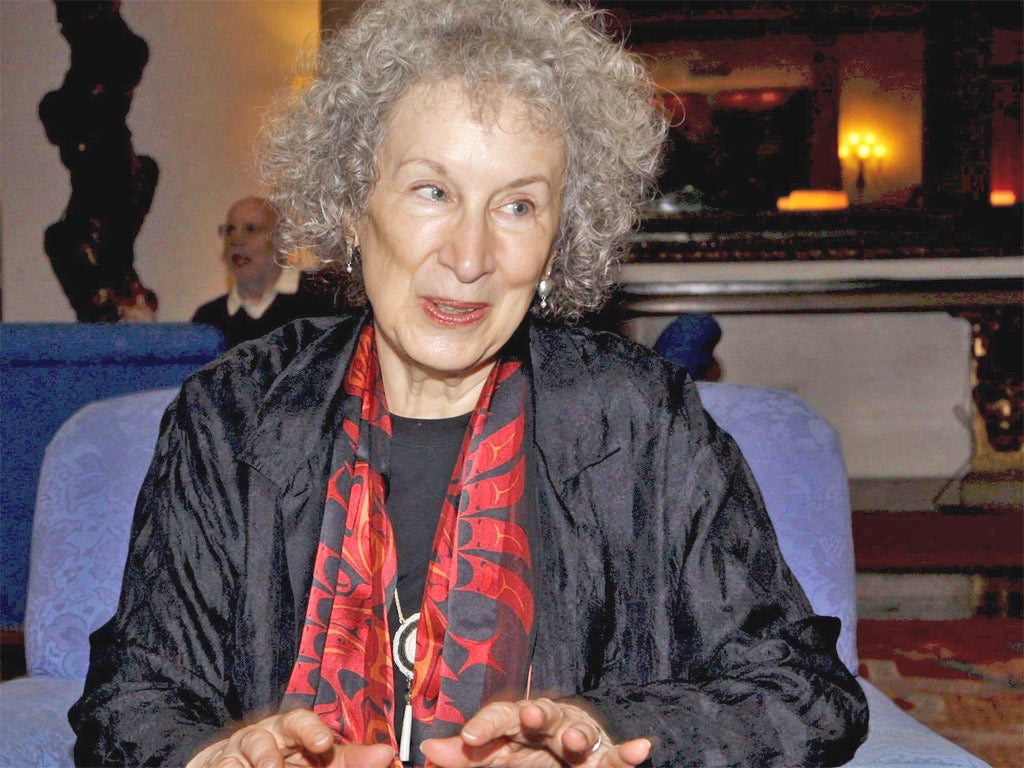John Walsh: Who wants a genius as their mentor? Not me
Notebook


When Naomi Alderman was rung up last autumn and asked if she'd be interested in "some kind of literary mentor scheme", it must have surprised her that she was being offered the protégée role. Alderman was, after all, a published writer. She'd won the Orange Award for new writers, and been named Young Writer of the Year by a Sunday newspaper.
The caller didn't say who the mentor would be, but encouraged her to apply. The fact that the scheme was being organised by the Rolex Mentor and Protégée Arts Initiative should have hinted that something special was involved. But it was only months later, after she and many others had been whittled down to a shortlist, that she learned her mentor would be Margaret Atwood.
Margaret Atwood? The gimlet-eyed, curly-barneted Canadian author of The Handmaid's Tale and Alias Grace? The five-times Booker shortlistee (and one-time winner) who's generally held to be one of the world's greatest living writers? Leaving aside the question of why Ms Atwood might condescend to be a glorified tutor (the $50,000 honorarium and free Oyster Royal might explain it), is Ms Alderman sure she wants the ordeal of having such a literary titan, whose disapproving gaze can freeze the blood of interviewers, scrutinise her new work in progress? Isn't she afraid that every word, clause and sentence will be judged inapt, unvivid, lazy, clichéd, or just wrong? Why would you want to come so close to a writer whose influence will loom over your work like a giant shadow?
We could all do with a mentor. But you don't want a mentor who's stratospherically better than you'll ever be. It's too depressing. You'll just start trying to imitate them. If I joined the Rolex scheme and found myself mentored by, I don't know, Cormac McCarthy, I might start my novel confidently enough ("Gerald awoke with a start in his Clapham maisonette, knowing with a ghastly certainty that his wife Prue had been unfaithful") but after one session with the author of All The Pretty Horses, it would have changed beyond recognition ("Gerry knew that a goodlookin woman was like a goodlookin horse – always more trouble than they were worth...")
Obviously I'd be grateful if Rolex gave me Stephen King as a mentor, but I'm not sure my book would preserve its original integrity ("Gerald woke in the burning warehouse, to see snakes wriggling in the eye sockets of the mad clown face...").
I'd love to tell friends that Philip Roth had agreed to mentor my work for six months, but I couldn't swear that I would retain much of my unique authorial voice after his helpful interventions ("Nathan didn't wake up. He'd been dead for three days, and now lay unmourned by his last girlfriend, Sadie Weizman, 61 years his junior, the recipient of his phenomenal, unflagging, jackhammer sexual prowess...").
Even if one were offered a titanically gifted British writer – say, Irvine Welsh – as mentor, I fear that some trace elements of their style might be detectable in one's own ("Gezzah woke wi a pain innez bollix the size oava fookin caber. He wiz pished, an hud been pished since the skag deal had goan doon. 'Yah plukey-faced wide-oh,' said hez hoor Prudence, 'Get ootay the bed and start cookin' up...'").
As St Augustine might have said: give us help and advice, Lord. But not too much.
Shake it all about
The humble handshake is news. A survey suggests that half of us no longer proffer a mitt to strangers. We think it's too formal a way to greet friends – the hug and kiss have eclipsed it – and is "appropriate only in a business setting". One person in 12 worries that it's a health risk.
Recently, the British Olympic Association's chief medic was asked if inter-team handshakes should be avoided. "I think, within reason, yes," he said. "We're talking about minimising risk of illness. It's all about hand hygiene." Later the BOA amended the ruling to say: "Do shake hands. Do use hand foam."
But what about the moment when Team GB meets its Olympic rivals and either refuses to grasp their outstretched hands or else sprays them with disinfectant? Do we want to seem a crowd of unfriendly neurotics? No we don't. Let's shake on that.
Join our commenting forum
Join thought-provoking conversations, follow other Independent readers and see their replies
Comments
Bookmark popover
Removed from bookmarks